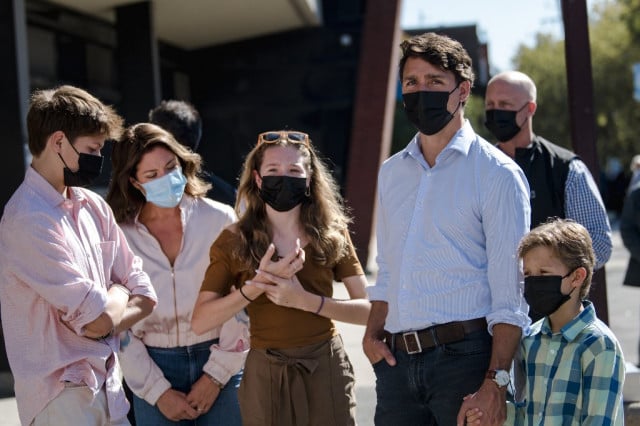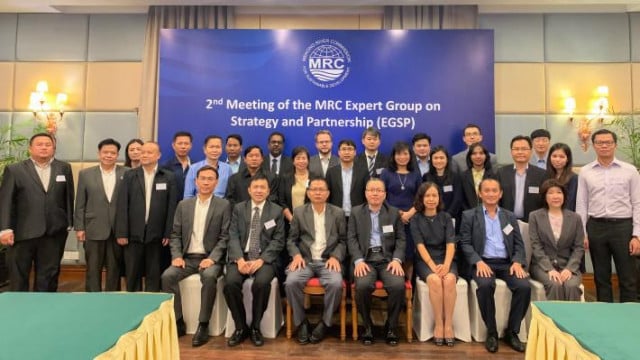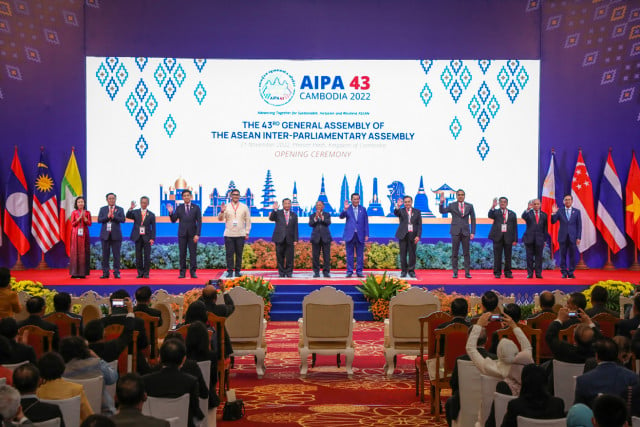Cambodia Steps Up Commitment to Carbon Neutrality

- By Meng Seavmey
- November 16, 2023 5:05 PM
PHNOM PENH – The Environment Ministry has launched a “Blue Skies & Net Zero 2050” drive to promote climate actions and for carbon neutrality by 2050, making Cambodia the first member country in Southeast Asia to execute this international campaign.
The Global Green Growth Institution (GGGI), an inter-governmental organization supporting sustainable economic growth, started the campaign with the Climate Change Center (South Korea) in 2020 for the same purpose.
As a GGGI member, Cambodia took a step forward with the campaign, which serves as a platform for governments, businesses, civil society groups, youth groups, and the public sector to join in discussions to raise awareness of air pollution and commitment to achieving neutral carbon.
The campaign aligns with the government’s priorities in the Nationally Determined Contributions (NDCs) and Long-Term Strategy for Carbon Neutrality (LTS4CN) to reduce greenhouse gases emission by 41.7 percent by 2030 and achieve carbon neutrality by 2050 to limit the average global temperature rise to 1.5 degrees Celsius.
“This requires resource of $7.8 billion by 2030,” Shomi Kim, country representative of GGGI Cambodia, said at the launch.
“This is the reason why we strived to bring everyone together, policy makers, development partners, private sectors and the youth group to discuss this topic to raise not only awareness but also understanding and action,”
Emmanuel Dollfus, the deputy country director of the Agence Française de Developpement (AFD), said it is a shared goal as seen through the AFD’s commitment to provide finance to Cambodia in water, energy, and technical and vocational education and training (TVET) in 2023 with around 200 million euros and more than 75% climate co-benefit.
The AFD also supported the actions through the Regional Program for Air Quality Improvement, launched in May, to develop an emission inventory and an air quality control data system institutionalized into the Environment Ministry, and build a roadmap for a low-carbon transportation strategy for Siem Reap Municipality this year.
Two Actions for One Goal
The “Blue Skies and Net Zero 2050” campaign aligns with the “Circular Strategy on Environment 2023-2028” as both focus on adopting circular economic principles to minimize waste, reduce carbon emissions, and promote resource efficiency.
Environment Minister Eang Sophalleth, officially launching the strategy book on the same day, said it is a plan responding to climate change by cleaning environment and reducing plastics. The book has three strategies.
The clean strategy is about controlling pollution, modernizing pollution measurement and improving environmental impact assessment. The ‘green’ strategy refers to increasing tree planting with at least one million trees per year, improving protected areas management, and enhancing local communities’ livelihood.
The sustainable strategy is used for applying compliance to align with national environmental policies, expanding cooperation with all partners, and strengthening coordination of the partners’ work performance.
“I can see that Cambodia will be a clean country in terms of environment in the future the next five to ten years,” he said.
“One of the factors is also the implementation of the campaign to reduce the use of plastic bags which is being held daily across the country.”
This campaign aims to reduce plastic use with the slogans “Today I Don’t Use Plastics”, “We Join Force to Protect Cambodia’s Environment”, and “Goodbye Plastics”, due to which more than 2.6 million participants have avoided the use of more than 10.6 million plastic bags since it started.
“It is about visiting schools, one after another, to raise awareness of the impact of plastics,” he said. “We will visit the schools often, then the campaign will turn into a movement, and the movement will turn into a habit by participating.”
Cambodia has participated actively in global commitments in responding to the climate change although the country is only a small emitter globally, Emmanuel said.















